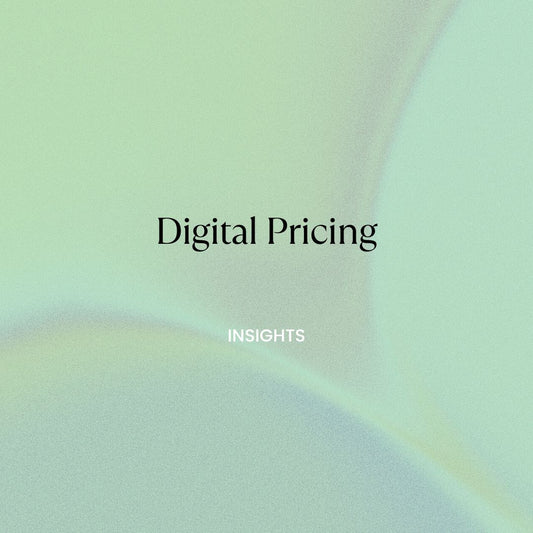Automotive brands face fierce competition, and standing out in the crowded marketplace requires tailored marketing strategies. Effective tactics not only attract new customers but also foster long-lasting relationships. This blog offers insights and tips to help automotive brands accelerate growth through targeted marketing approaches.
Understanding Automotive Brands and Their Market
Automotive brands cater to a diverse audience with unique preferences and requirements. To effectively target these potential customers, it is crucial to have a deep understanding of the automotive industry, the competitive landscape, and opportunities for growth.
Defining the target audience involves identifying the specific demographic segments that are most likely to purchase a particular brand's vehicles. This may include factors such as age, income, geographical location, and lifestyle preferences. By understanding the characteristics of their target audience, automotive brands can tailor their marketing efforts to resonate with potential customers and address their specific needs.
The automotive industry is highly competitive, with numerous brands vying for market share. Brands must constantly innovate and adapt to stay ahead of the competition, offering unique value propositions and differentiators that appeal to their target audience. This competitive landscape requires brands to conduct regular analyses of their competitors' strategies and performance, ensuring that they are aware of the latest trends, technological advancements, and consumer preferences.
Identifying opportunities for growth in the automotive market requires a proactive approach to market research and analysis. Brands must monitor industry trends, consumer behaviors, and emerging technologies to capitalize on potential growth opportunities. This may include expanding into new markets, introducing innovative products, or improving existing offerings. By staying informed and agile, automotive brands can seize opportunities for growth and establish a strong foothold in the competitive landscape.
Developing Targeted Marketing Strategies for Automotive Brands
An effective marketing strategy is critical for automotive brands to stand out in the competitive landscape. To develop targeted marketing strategies, brands must focus on analyzing customer behavior and preferences, segmenting and personalizing marketing campaigns, and leveraging data-driven insights for better decision-making.
Understanding customer behavior and preferences is crucial for automotive brands to tailor their marketing efforts to address the specific needs of their target audience. By analyzing data on customer demographics, purchase patterns, and feedback, brands can gain valuable insights into the factors that influence customer decisions and preferences. This information can then be used to design marketing campaigns that resonate with potential customers and drive sales.
Segmentation and personalization of marketing campaigns involve dividing the target audience into smaller groups based on shared characteristics or interests. By doing so, automotive brands can create highly targeted campaigns that speak directly to the needs and preferences of each segment. Personalization can be achieved through various tactics, such as customizing content, offering tailored promotions, and using personalized email marketing campaigns. By delivering relevant and engaging experiences to each segment, brands can improve customer engagement and conversion rates.
Lastly, leveraging data-driven insights for better decision-making is essential for automotive brands to optimize their marketing strategies and maximize ROI. By utilizing advanced analytics tools and techniques, brands can gain a deep understanding of the effectiveness of their marketing efforts, identify areas for improvement, and make informed decisions about future campaigns. By continuously monitoring and analyzing data, automotive brands can stay agile, adapt to market changes, and drive sustained growth.
Enhancing Brand Awareness and Visibility
In today's digital age, automotive brands must prioritize enhancing their brand awareness and visibility to reach a wider audience and drive growth. This involves focusing on three key areas: building a strong online presence, leveraging search engine optimization (SEO) techniques, and utilizing social media platforms effectively.
A strong online presence is crucial for automotive brands to showcase their offerings and connect with potential customers. This includes having a user-friendly and informative website that highlights the brand's value propositions, products, and services. Additionally, consistently creating and sharing engaging content across various digital platforms helps to establish the brand as an authority in the industry and attract new customers.
Search engine optimization (SEO) plays a vital role in enhancing brand visibility by ensuring that automotive brands rank high on search engine results pages. By implementing effective SEO techniques, such as keyword research, on-page optimization, and link building, brands can improve their online visibility and drive more organic traffic to their website. This increased visibility translates to a higher likelihood of attracting potential customers and generating leads.
Finally, social media platforms offer automotive brands an unparalleled opportunity to reach a wider audience and engage with potential customers. By sharing relevant and engaging content, participating in conversations, and responding to customer feedback, brands can build strong relationships with their audience and foster brand loyalty. Additionally, social media advertising and influencer collaborations can further enhance brand awareness and drive targeted traffic to the brand's website.
In conclusion, enhancing brand awareness and visibility is essential for automotive brands to stand out in the competitive market and drive growth. By focusing on building a strong online presence, leveraging SEO techniques, and utilizing social media platforms effectively, automotive brands can increase their reach, attract new customers, and foster long-lasting relationships.
Implementing Effective Lead Generation Tactics
To drive growth and attract new customers, automotive brands must focus on implementing effective lead generation tactics. This involves creating engaging and informative content, utilizing lead magnets and targeted offers, and collaborating with influencers and industry experts.
Engaging and informative content is essential for capturing the interest of potential customers and guiding them through the buyer's journey. This can be achieved through various formats, such as blog articles, videos, infographics, and social media posts. By providing valuable information that addresses the needs and preferences of the target audience, automotive brands can establish themselves as industry authorities and attract more leads.
Lead magnets and targeted offers are powerful tools for capturing customer information and driving conversions. Automotive brands can offer exclusive discounts, promotions, or content in exchange for the customer's contact information. This allows the brand to nurture the relationship with potential customers through personalized email marketing campaigns and follow-up communications, ultimately leading to increased sales.
Collaborating with influencers and industry experts can greatly enhance the credibility and reach of an automotive brand's marketing efforts. By partnering with influential individuals who have a strong following in the target audience, automotive brands can tap into their expertise and audience to generate more leads and boost brand awareness. This collaboration can take the form of sponsored content, co-created content, or expert endorsements, among other tactics.
In conclusion, implementing effective lead generation tactics is crucial for automotive brands to drive growth and attract new customers. By focusing on creating engaging and informative content, utilizing lead magnets and targeted offers, and collaborating with influencers and industry experts, automotive brands can successfully generate leads and nurture lasting relationships with potential customers.
Strengthening Customer Relationships and Retention
Customer relationships and retention are critical components of an automotive brand's long-term success. To strengthen these relationships, brands should focus on personalized email marketing campaigns, encouraging customer loyalty through incentives and rewards, and maintaining regular communication with existing customers while providing exceptional service.
Personalized email marketing campaigns allow automotive brands to connect with their customers on a deeper level by addressing their specific needs and preferences. By segmenting their email lists and tailoring content to each segment, brands can deliver relevant, engaging, and informative messages that resonate with their audience. This targeted approach not only drives conversions but also fosters lasting relationships with customers.
Encouraging customer loyalty is essential for automotive brands looking to retain their existing customers and drive repeat business. One effective strategy for fostering loyalty is through incentives and rewards programs, such as exclusive discounts, promotions, or loyalty points. By offering tangible benefits to returning customers, automotive brands can build strong connections with their audience and incentivize repeat purchases.
Finally, keeping in touch with existing customers and providing exceptional service is crucial for maintaining long-term relationships and ensuring customer satisfaction. Regular communication through newsletters, social media updates, and personalized follow-up messages keeps customers informed about new products, promotions, and company news. Additionally, providing exceptional customer service, such as prompt and helpful responses to inquiries or concerns, can further strengthen the bond between the brand and its customers.
In conclusion, strengthening customer relationships and retention is crucial for the long-term success of automotive brands. By implementing personalized email marketing campaigns, encouraging customer loyalty through incentives and rewards, and maintaining regular communication with existing customers, automotive brands can foster lasting relationships and ensure continued growth.
Combining Traditional and Digital Marketing Efforts
In today's marketing landscape, automotive brands must strike a balance between traditional and digital marketing efforts to reach their target audience effectively. This involves balancing marketing budgets for maximum impact, integrating offline and online marketing initiatives, and measuring and analyzing results for continuous improvement.
Allocating marketing budgets strategically enables automotive brands to optimize their marketing efforts and achieve the best results. By evaluating the performance of both traditional and digital marketing channels, brands can determine which tactics are most effective in reaching their target audience and driving sales. This information can guide budget allocation decisions, ensuring that brands invest in the most impactful marketing channels.
Integrating offline and online marketing initiatives is crucial for creating a cohesive brand experience and maximizing marketing effectiveness. This may involve coordinating traditional marketing efforts, such as print advertisements, billboards, and events, with digital marketing tactics like social media, email marketing, and content creation. A well-integrated marketing approach ensures that potential customers receive consistent brand messaging across all touchpoints, increasing the likelihood of conversion and fostering brand loyalty.
Lastly, measuring and analyzing results is essential for continuous improvement in marketing efforts. By tracking key performance indicators (KPIs), such as engagement, conversion rates, and return on investment, automotive brands can identify areas of strength and weakness in their marketing strategies. Regular analysis of these metrics enables brands to make data-driven decisions about future marketing initiatives, helping them to optimize their efforts and drive growth.
In conclusion, combining traditional and digital marketing efforts is key for automotive brands to reach their target audience effectively and drive growth. By balancing marketing budgets, integrating offline and online marketing initiatives, and measuring and analyzing results, automotive brands can create a cohesive and impactful marketing strategy that delivers results.
Utilizing Marketing Automation Tools and Solutions
Marketing automation is essential for automotive brands to streamline their marketing processes, enhance efficiency, and drive growth. The right tools and platforms can help brands manage their campaigns more effectively, integrate automation with existing systems, and achieve better results.
Streamlining marketing processes for efficiency is crucial for automotive brands to save time and resources while delivering impactful marketing campaigns. Marketing automation tools can automate repetitive tasks, such as sending personalized email campaigns, scheduling social media posts, and tracking campaign performance. By automating these processes, automotive brands can focus on strategic decision-making and creative development.
Selecting the right tools and platforms for your automotive brand is vital to ensure that your marketing automation efforts align with your goals and requirements. There are various marketing automation solutions available, each with its unique features and capabilities. Brands should consider factors such as ease of use, scalability, and integration with existing systems when evaluating different marketing automation tools.
Integrating marketing automation with existing systems is essential for creating a seamless marketing ecosystem and maximizing the effectiveness of your marketing efforts. By connecting automation tools with customer relationship management (CRM) systems, analytics platforms, and other software, automotive brands can centralize their marketing data and gain a holistic view of their campaigns. This integration enables brands to make data-driven decisions, optimize their marketing strategies, and drive growth.
In conclusion, utilizing marketing automation tools and solutions is crucial for automotive brands to streamline their marketing processes, improve efficiency, and drive growth. By selecting the right tools, integrating automation with existing systems, and focusing on efficiency, automotive brands can maximize the impact of their marketing efforts and achieve better results.
Case Studies: Successful Automotive Brands and Their Marketing Strategies
Examining examples of automotive brands that have achieved growth through tailored marketing strategies can offer valuable insights and lessons for your own automotive brand. In this section, we will explore a few successful case studies and discuss the key takeaways that can be applied to your marketing efforts.
One example is Tesla, which has relied heavily on innovative marketing approaches to establish itself as a leader in the electric vehicle market. Tesla's marketing strategies include leveraging social media and content marketing to create a buzz around its products, building a strong community of brand advocates, and focusing on an exceptional customer experience. The key lesson from Tesla's success is the importance of differentiating your brand through innovation and consistently delivering exceptional value to your customers.
Another notable example is BMW, which has long been known for its commitment to producing high-performance luxury vehicles. BMW has leveraged various marketing strategies, including experiential marketing events, influencer partnerships, and targeted digital campaigns, to engage its target audience and maintain its position as a leader in the automotive industry. BMW's success demonstrates the importance of understanding your target audience and delivering tailored marketing efforts that resonate with their needs and preferences.
Audi is another automotive brand that has successfully employed tailored marketing strategies to drive growth. Known for its innovative technology and sleek design, Audi has focused on showcasing these elements in its marketing efforts. The brand has effectively leveraged video marketing, virtual reality experiences, and partnerships with popular movies to create buzz and generate interest in its vehicles. The key takeaway from Audi's success is the importance of leveraging emerging marketing channels and technologies to create memorable experiences for your target audience.
In conclusion, examining successful automotive brands and their marketing strategies can offer valuable insights and lessons for your own automotive brand. By focusing on innovation, understanding your target audience, and leveraging emerging marketing channels and technologies, you can create tailored marketing strategies that drive growth and establish your brand as a leader in the automotive industry.
Rev Up Your Marketing
Adopting tailored marketing strategies is essential for automotive brands looking to drive growth and stand out in the competitive landscape. By understanding your target audience, leveraging emerging marketing channels, and utilizing marketing automation tools, you can create impactful campaigns that resonate with potential customers. Soda Spoon Marketing Agency has the expertise to help automotive brands accelerate their growth through customized marketing strategies. Visit our blog for more insights and tips: https://www.sodaspoon.com/blogs/news












